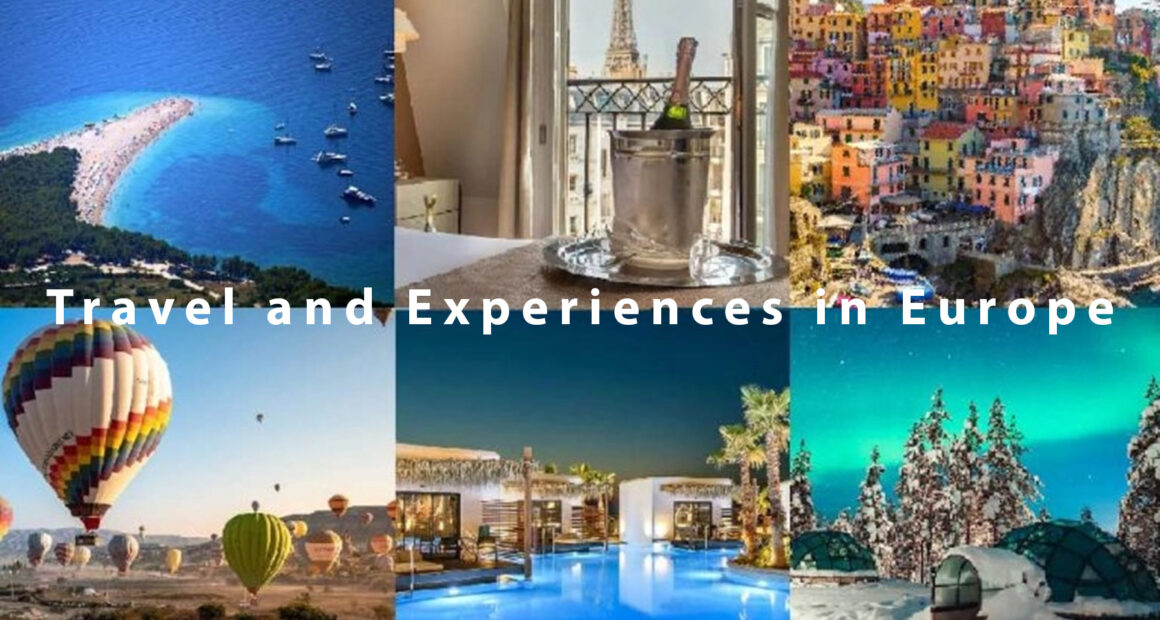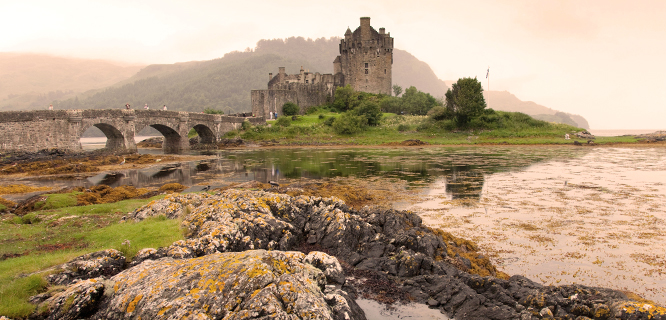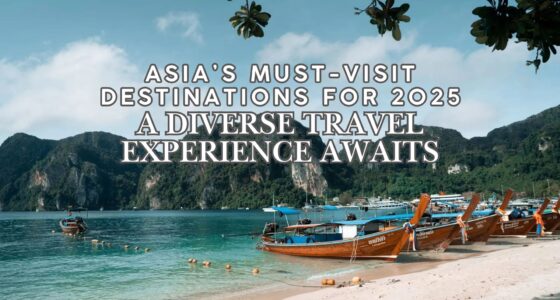Travel and Experiences have undergone significant transformations in Europe, shaped by evolving consumer preferences, technological advancements, and environmental concerns. The travel industry is increasingly emphasizing sustainability, personalization, and unique, immersive experiences. Post-pandemic, travelers are seeking more meaningful, authentic experiences that allow them to connect with nature, local cultures, and diverse communities.
Key Trends in Travel and Experiences in Europe
1. Sustainable Tourism
Sustainable tourism is one of the most prominent trends shaping travel in Europe, driven by both governmental initiatives and rising consumer demand for more eco-conscious travel options. Key elements include:
- Eco-Friendly Destinations: Cities and regions across Europe are emphasizing sustainability. For instance, Copenhagen and Amsterdam are actively promoting cycling over car use, while Scotland focuses on nature-based tourism that preserves its national parks and wildlife.
- Carbon-Neutral Travel: The European Union is taking steps to reduce the carbon footprint of travel. There’s a rising movement toward carbon-neutral transportation (like electric buses, trains, and flights). The EU’s Green Deal aims for net-zero emissions by 2050, influencing travel behavior, with more passengers opting for low-emission forms of transport.
- Nature-Based Tourism and Eco-Lodging: Nature reserves, national parks, and rural destinations are gaining popularity as more people look for off-the-beaten-path, environmentally responsible travel experiences. Eco-friendly accommodations, such as glamping (luxury camping) and sustainably built eco-lodges, are rising in demand.
- Reducing Over-Tourism: Many European destinations are taking measures to manage over-tourism, encouraging visitors to explore lesser-known areas. For example, Venice has introduced booking systems and limits on the number of tourists to preserve its delicate cultural heritage. Similarly, cities like Barcelona and Amsterdam are promoting tourism outside of peak seasons to alleviate overcrowding.
- Green Certifications for Hotels and Attractions: More travel businesses are seeking certifications for environmental sustainability, such as Green Key or EarthCheck, allowing tourists to easily identify environmentally responsible options.
2. Digital Nomadism and Remote Work
The COVID-19 pandemic accelerated the trend of remote work, and many European countries have embraced the growing phenomenon of digital nomadism. Cities like Lisbon, Tallinn, and Barcelona are becoming hubs for remote workers who combine work and travel. Notable aspects include:
- Remote Work Visas: Countries such as Estonia, Portugal, and Croatia now offer special visas for digital nomads, allowing them to live and work in the country while contributing to the local economy.
- Workcation-Friendly Destinations: Some destinations are focusing on creating workcation-friendly environments, offering coworking spaces, reliable internet, and amenities tailored to remote workers.
- Long-Term Stays: The growing trend of long-term stays in more affordable destinations, including smaller towns and rural areas, has led to a rise in demand for temporary housing and flexible accommodation options.
- Coworking and Coliving Spaces: There is a surge in the number of coworking spaces (where digital nomads work) and coliving spaces (offering both accommodation and workspaces). Companies like Selina and WeWorkhave expanded into European cities catering to this mobile workforce.
3. Authentic Local Experiences
Travelers are moving away from traditional sightseeing and seeking more authentic, immersive experiences that connect them with local cultures, people, and history. This trend can be seen in:
- Local Culinary Experiences: Food tourism is booming, with travelers seeking authentic, locally sourced food experiences. Italian cooking classes, Spanish tapas tours, or visiting vineyards in France or Portugal are prime examples. The rise of farm-to-table dining also emphasizes sustainability and local produce.
- Cultural Immersion: Travelers are increasingly interested in experiences that allow them to engage with local traditions, artisans, and communities. This could include attending local festivals, craft workshops, or visiting family-owned farms and businesses.
- Slow Travel: Slow travel encourages taking time to truly experience a place, often by exploring lesser-known regions and spending longer periods in a destination to fully engage with the local culture and environment. This is a stark contrast to the rush of traditional sightseeing trips.
- Volunteering and Social Impact Travel: More tourists are choosing to contribute to local communities through volunteer programs or by supporting social enterprises, from working on conservation projects to participating in community-building activities.
4. Technology-Driven Travel Experiences
Technology continues to reshape the travel experience, from personalized itineraries to immersive experiences in destinations. Europe is at the forefront of technological advancements in travel. Notable trends include:
- Augmented Reality (AR) and Virtual Reality (VR): These technologies are changing the way tourists experience destinations before, during, and after their trip. For example, VR can provide virtual tours of historical sites, museums, and cultural landmarks. Similarly, AR can enhance physical visits, adding interactive layers to a location (e.g., history overlays at ancient ruins).
- Contactless Travel: The pandemic led to a significant rise in contactless technology in airports, hotels, and transport systems. From contactless check-ins to mobile ticketing and smart luggage systems, travelers can now navigate their journeys more seamlessly.
- AI for Personalization: Artificial intelligence is increasingly used in travel apps and websites to offer personalized recommendations. From suggesting hotels and activities based on preferences to providing tailored itineraries, AI is enhancing customer service and engagement.
- Smart Cities and IoT: Many European cities are integrating Internet of Things (IoT) technologies to improve the efficiency of urban systems. For example, smart transportation, sensor-driven public services, and sustainable urban development are creating more connected, user-friendly travel environments.
5. Adventure and Nature Tourism
Nature and outdoor experiences are gaining popularity as travelers seek to reconnect with the environment. Europe offers some of the most stunning natural landscapes and adventurous activities. Key highlights include:
- Hiking and Trekking: Europe boasts some of the world’s most famous hiking destinations, from the Swiss Alpsto Scotland’s Highlands, and the Pyrenees. The Camino de Santiago pilgrimage in Spain remains one of the most popular long-distance treks.
- Wildlife and Eco-Tourism: Wildlife tours, such as those to see polar bears in Norway or whale watching in Iceland, are drawing eco-conscious tourists. National parks like Plitvice Lakes National Park in Croatia and Lake District National Park in the UK are prime examples of destinations where travelers can immerse themselves in nature.
- Skiing and Snow Sports: Traditional winter sports like skiing, snowboarding, and mountaineering continue to be popular, especially in destinations like the Swiss Alps, French Alps, and Austria’s Tyrol region. Sustainability is being emphasized in these areas with eco-friendly resorts and ski lifts powered by renewable energy.
- Cycling Tours: With many European cities focusing on sustainability, cycling tours are an increasingly popular way to explore. Cycling through the Loire Valley in France or along the Danube River in Germany offers an eco-friendly, slow-travel experience.
6. Luxury Travel and Experiential Tourism
Luxury travel is evolving with a stronger emphasis on exclusive, bespoke experiences and sustainability. Travelers are looking for personalized luxury experiences that align with their values. This includes:
- Private Tours and Custom Travel: High-end travelers are looking for curated, private tours with local guides who offer deep, insider knowledge. Bespoke itineraries, tailored to the traveler’s personal interests, are growing in popularity.
- Wellness Retreats: Europe is home to numerous wellness retreats focusing on health, rejuvenation, and mindfulness. For example, Switzerland’s luxury spas, yoga retreats in the French countryside, and meditation getaways in Italy cater to those seeking luxury relaxation experiences.
- Luxury Sustainability: High-end hotels and resorts are embracing sustainability with eco-friendly architecture, locally sourced food, and waste-reduction initiatives. Luxury eco-hotels, like those in the Côte d’Azur or the Icelandic countryside, are designed with green building practices and sustainable practices in mind.
7. Post-Pandemic Travel Preferences
In the aftermath of the COVID-19 pandemic, travelers in Europe are placing more importance on safety, flexibility, and private experiences. Some travel behaviors that emerged include:
- Solo Travel: There has been an increase in solo travel, with many people seeking personal reflection, independence, and connection with new places on their own terms.
- Private Accommodation: The demand for private rentals (e.g., through Airbnb) and boutique hotels offering private experiences has surged, as people seek safer, more controlled environments.
- Short-Term Getaways: Many Europeans are opting for weekend getaways or “staycations,” avoiding long-haul travel in favor of exploring local and regional destinations.
Conclusion
The Travel and Experiences sector in Europe is evolving rapidly in response to changing consumer demands, societal shifts, and environmental challenges. From sustainable tourism and eco-conscious travel to personalized, technology-driven, and immersive experiences, the industry is adapting to meet the needs of a new generation of travelers. Whether through eco-friendly practices, deeper cultural engagement, or adventure tourism, Europe remains a leading destination for innovative and responsible travel experiences.









